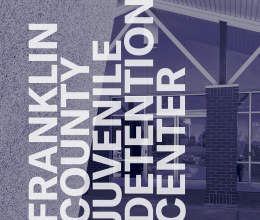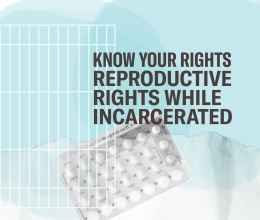
Testimony of Lindsay Miller
Staff Attorney, ACLU of Illinois
Before the House Appropriations-Public Safety Committee
Subject Matter On: Safety in DJJ and DOC
December 5th, 2017
To Chair Cassidy and members of the House Appropriations – Public Safety Committee,
Good Afternoon. My name is Lindsay Miller, and I am an attorney with the American Civil Liberties Union of Illinois. The ACLU represents DJJ youth in the lawsuit R.J. v. Mueller. This lawsuit, and the resulting Consent Decree and Remedial Plan, are designed to rectify longstanding deficiencies in the conditions and services that have historically failed youth in DJJ, particularly in the areas of mental health, education, safety, and the use of solitary confinement. The requirements of the Consent Decree and Remedial Plan are further designed to enable the Department to fulfill its mission of rehabilitating youth and successfully reintegrating them into their communities.
As plaintiffs’ counsel, we share in the concerns about violence in DJJ facilities. Institutional violence not only presents an immediate threat to the safety and well-being of staff and youth, but also interferes with the successful treatment and rehabilitation of our clients.
As the court-appointed experts in R.J. have explained, understanding and addressing institutional violence is not as simple as identifying misbehaving youth and imposing punishments. Shifts in institutional violence have multiple causes, and as such, require comprehensive and multi-faceted solutions. The requirements of the R.J. settlement, while designed to address a range of constitutional deficiencies, will also have positive impacts on safety for both youth and staff when fully implemented. These requirements include:
- Improved staffing ratios for security, education, and mental health staff;
- Creation and implementation of an agency-wide behavior management system that provides a consistent model for youth behavior throughout all facilities;
- Full-time education and vocational training opportunities, enhanced mental health assessment and treatment, and other programming to eliminate youth idleness; and
- Improved staff training on effective behavioral management, conflict resolution and de-escalation techniques, and mental health and trauma needs of youth.
To date, however, there have been many obstacles to implementing these reforms, and the Department has not yet been able to achieve and realize the benefits of full compliance. Security and education staff shortages and lack of staff training have hampered change, and particularly at IYC St. Charles, have interrupted education and general programming. Understaffed facilities cannot successfully manage youth, and chronic understaffing and turnover has resulted in increased youth idleness, frustration, and misbehavior. The Department’s new behavior management system, PBIS, has yet to be fully implemented, resulting in the inconsistent enforcement of rewards and consequences, and a lack of trust in the system by staff and youth alike. The Department is also undergoing a significant culture change, as staff learn to operate in a system that, rightly, no longer permits the use of punitive solitary confinement.
As the R.J. experts have repeatedly observed, these struggles, while frustrating, are not unique to Illinois. Other juvenile programs, including those in California, Maryland, Louisiana, and New York State, overcame initial difficulty implementing reforms similar to those sought in Illinois, and ultimately achieved institutional safety and success.
In order to improve safety and security for staff and youth throughout the agency going forward, we believe the Department, and the State, must focus on the following:
- First, the Department must ensure that all DJJ facilities are fully staffed. Facilities that are fully staffed will be better equipped to ensure programmatic and therapeutic consistency for youth, which will have positive effects on youth behavior.
- Second, the Department must ensure programmatic support and resources for youth and staff, particularly in the areas of behavior management, treatment, and interventions. To be effective, the Department’s behavior management system must be fully funded and consistently implemented. Staff must be equipped with the training and resources to provide meaningful incentives and consequences for youth. There must also be adequate funding and support for programs that reduce youth idle time and provide treatment and interventions for youth with more challenging behavioral needs.
- Lastly, the Department must enhance training, communication, and support for staff who are responsible for managing youth behavior. All facility staff should feel comfortable and confident in the level and quality of training they’ve received in behavior management techniques, conflict resolution, and de-escalation. To be effective, this training should be tied to the treatment needs of youth, so staff can more readily identify and address the underlying causes of youth misbehavior. The Department must also continue efforts to improve communication with staff who implement the Department’s behavior management system, and be transparent about the steps being taken to make facilities safer.
On behalf of the ACLU, I thank the Committee for the opportunity to provide testimony about current safety issues in DJJ, and look forward to further discussions about solutions.



